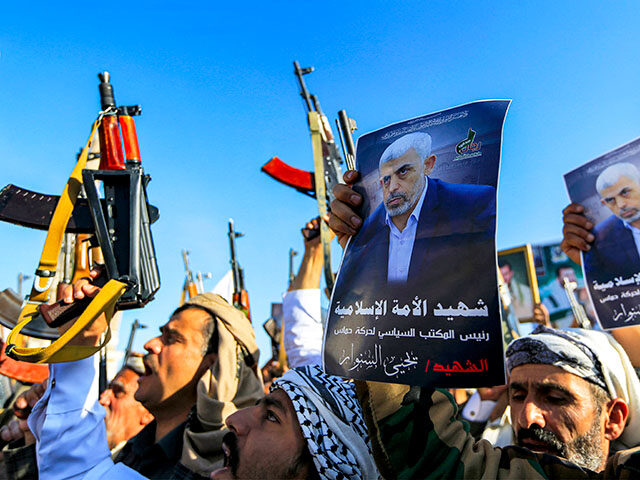Iran’s mission to the United Nations said the “spirit of resistance” in Gaza will only be “strengthened” by the death of Hamas leader and October 7 mastermind Yahya Sinwar, who was killed on Thursday by Israeli ground forces as he attempted to flee into Egypt.
The Iranian mission wrote a post on social media platform X that sought to contrast Sinwar’s end with the supposedly more humiliating demise of Iraqi dictator Saddam Hussein:
When U.S. forces dragged a disheveled Saddam Hussein out of an underground hole, he begged them not to kill him despite being armed. Those who regarded Saddam as their model of resistance eventually collapsed.
However, when Muslims look up to Martyr Sinwar standing on the battlefield—in combat attire and out in the open, not in a hideout, facing the enemy—the spirit of resistance will be strengthened. He will become a model for the youth and children who will carry forward his path toward the liberation of Palestine.
As long as occupation and aggression exist, resistance will endure, for the martyr remains alive and a source of inspiration.
Iran’s enthusiasm for fighting to the last dead Palestinian may not be enough to maintain the morale of Tehran’s terrorist proxies, who have suffered an astonishing string of leadership losses over the past few months.
The Israel Defense Forces (IDF) has killed hundreds of Hamas leaders and fighters in Gaza during a year of warfare. The political chief of Hamas, Ismail Haniyeh, was killed by a bomb in July while hiding in Tehran.
When Iran’s Lebanese proxy Hezbollah entered the battle, it promptly lost many of its leaders to exploding pagers and portable radios. Hezbollah leader Hassan Nasrallah, once thought untouchable, was killed by an Israeli airstrike on his bunker in late September.
Sinwar’s elimination on Thursday was another massive blow to terrorism, and the circumstances of his demise were so ugly that Iran and its proxies might have trouble mythologizing a dead terrorist for a change.
Sinwar was not killed in some bold battle for the future of the Palestinians; he was trying to flee into Egypt with his pockets stuffed full of looted cash and fake passports. He died while hiding from the IDF after the rest of his entourage was killed. When an Israeli drone found him, he realized his time was up and feebly threw a stick at the floating camera as his final act.
Contrary to the Iranian’s frantic myth-making, the most readily apparent difference between the deaths of Saddam Hussein and Sinwar is that the latter was seated in what appears to have been a comfortable chair when he died.
Terrorist organizations have survived leadership losses before and their propaganda operations are often successful at lionizing some fairly embarrassing deaths, but some analysts believe Sinwar’s loss will be exceptionally difficult for Hamas.
Like Iran’s terror master Qassem Soleimani, killed by an airstrike ordered by President Donald Trump in January 2020 while organizing attacks against Americans in Iraq, Sinwar had skills and connections that will be difficult to replace.
“Sinwar had very unique attributes. He was someone who had very strong standing in both the political and military wing,” former Palestinian Authority negotiator and current Washington Institute for Near East Policy senior fellow Ghaith al-Omari told Foreign Policy on Thursday.
Foreign Policy pointed out that Sinwar took over the “political wing” of Hamas after the assassination of Ismail Haniyeh, so his death on Thursday was almost a two-for-one special for the IDF.
None of Sinwar’s potential replacements seem to have his combination of cunning, ruthlessness, influence, and credibility with both wings of Hamas. Senior Hamas official Khaled Mashal, for example, has not lived in the Palestinian territories since he was a child and he supported rebel forces in the Syrian civil war, while Hamas’ patrons in Iran backed dictator Bashar Assad.
Hamas might also have to deal with the possibility that many Palestinians loathe the organization and stayed in line due to fear – and Hamas is much less scary today. A fair number of Palestinians will not be sad to see Sinwar go.
“He’s largely viewed as a psychopath who has taken Hamas not only in a more extreme direction but has made decisions during his tenure that have worsened prospects for Gaza’s development,” said Atlantic Council senior fellow Ahmed Fouad Alkhatib.

COMMENTS
Please let us know if you're having issues with commenting.